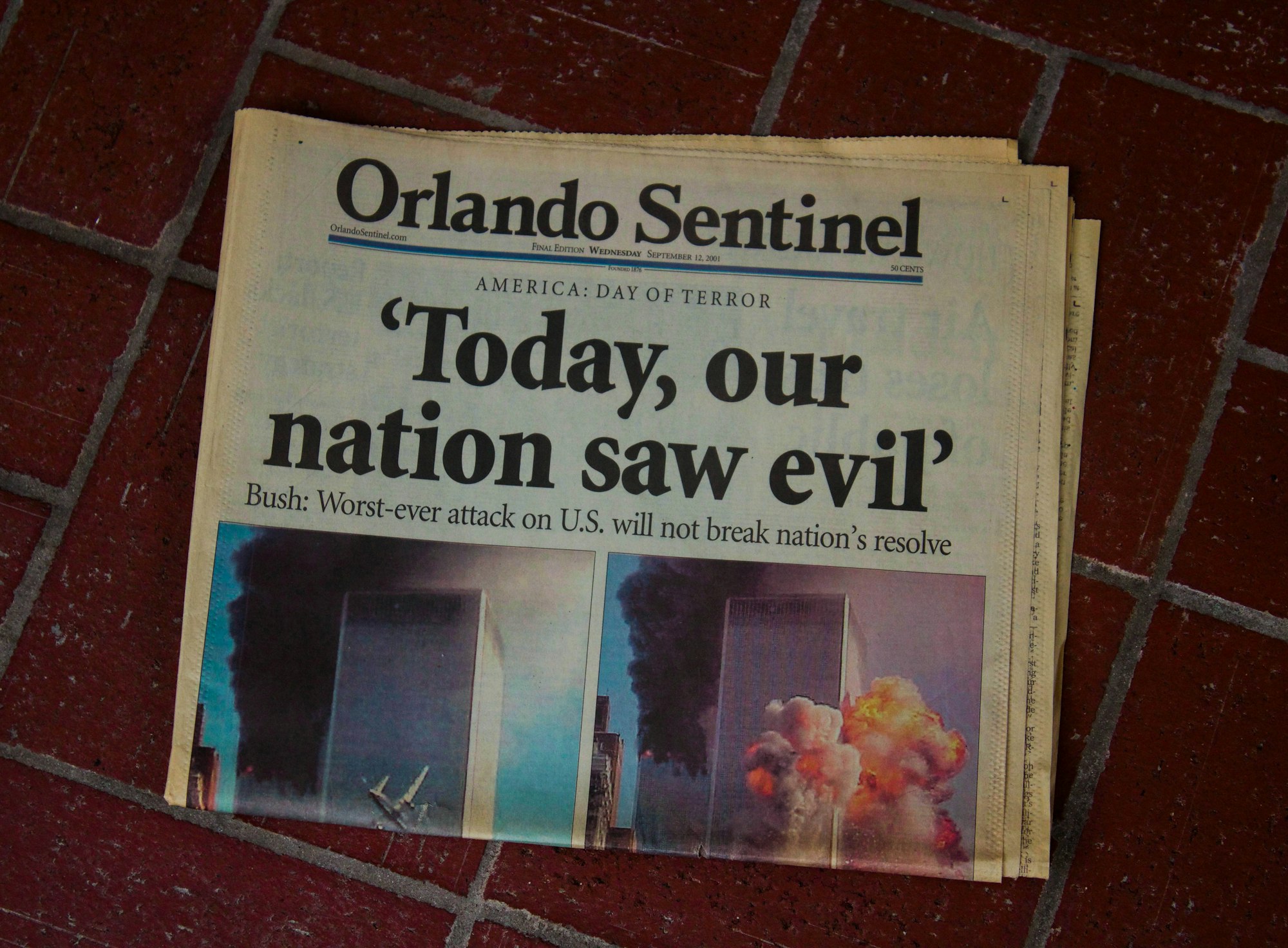
September 11th and Selective Memory
In never forgetting 9/11, we willfully neglect that we could have curtailed our current epidemic of government overreach two decades ago
Last year, the 20th anniversary of 9/11 passed as would any day meant to commemorate enduring freedom occurring 36 hours after the president announced his now defunct OSHA-enforced nationwide vaccine mandate— a direct assault on bodily autonomy that his staff proudly touted as the ultimate constitutional work-around. A tenure-track professor tweeted some incendiary stuff about the attacks’ role in “heteropatriarchal capitalistic systems” and received cover from her university in the obligatory fallout. Joe Biden made an empty plea for unity despite spending the week demonizing the 50% of Red State voters who remain unvaccinated. Donald Trump again upstaged the most popular president in history in his latest Shadow Leader surprise visit with the salt of the Earth as he commended NYC police officers and firefighters.
Such pageantry was enough to make those old enough to remember yearn for the semi-sincere moment when Congress joined together hours after the attacks to sing “God Bless America,” an event about as spontaneous as Uncle Joe’s ice-cream photo ops. For many, our leaders’ exhibition of unity showcased the same comforts as a Hallmark movie—ensconced in cringe but a reminder of both our commonality and the unflagging American dream—which neither partisan politics nor terrorists who somehow bested our defense protocols with box cutters could shake. Yet, the Biden administration’s authoritarian flexing of bureaucracy as skirted responsibility for the Taliban’s recapture of Afghanistan reveals the long-neglected truth about this winsome display: our politicians weren’t singing to show solidarity in the face of a threat. Like a child humming while exploring a dark basement, they were masking their fear as the policies that defined their careers became unglued.
While Congress channeled its anxieties into spectacle live from the heart of destruction in 2001, many Tennesseans were longing to be part of the narrative. Word on the street was that the space institute at Tullahoma may be next. Or Oak Ridge. Or Knoxville’s Sunsphere and Memphis’s pre–Bass–Pro–Shops–branded Pyramid. Such minor-landmark risk assessment played out across the nation similar to what one might imagine the whittling down of the action scenes in Independence Day looked like (if only we had the destruction of St. Louis’s Gateway Arch in our cinematic consciousness). None of these threats materialized, and scant evidence exists to show they ever would. Regardless, in the intervening 20 years before the reboot of the Taliban, the coping mechanism of localizing the quest to bleed American never went away. Instead, it fused with partisan politics as it pushed logic to the margins.
When George W. Bush’s approval ratings hit record highs in the days following 9/11, conservatives felt vindicated. The guy who would have likely never gotten across the finish line had Trumpworld A-lister Roger Stone not instigated the Brooks–Brothers riot outside the Miami-Dade recount rooms provided the Republican party with its first foray into iconography since Reagan, even partly undoing the patina of defeat the elder Bush left on the movement. Such may account for why so many Republicans abandoned their conservative principles as Bush II began his ascendancy. No one balked when he created an entirely new bureaucratic entity in the Department of Homeland Security. We dutifully took off our shoes at the airport and spent hours squirting our toiletries into trial-size carry-on bottles for the greater good. The Patriot Act even became a Republican rallying cry as we shamed the “No Blood for Oil” crowd’s indignation over the government’s sudden need for citizens’ library records. Democracy had to be preserved at all costs.
Two decades later, opposition to COVID measures has become the de facto conservative litmus test. The same left-wing activists decrying Wal-Mart and global oil corporations in the early aughts have fully embraced Big Pharma and assaults on civil liberties as pillars of their identity. One can’t really blame them. As 9/11 taught us, we deal with fear by exaggerating our roles in the that pesky American metanarrative that postmodernism could never quite erase, whether by obsessing over our hometown’s target status during an attack on America or demanding a local millennial with a 99.95% chance of surviving COVID wear a mask and show some papers to buy a latte. The blame primarily lies with Republican Party politics and its two decades of placing electoral success over cogent values. 9/11 really did change everything. But only because we let it. Now, despite this newfound bluster over lost freedoms and individual rights, we must come to grips with the fact that no rendition of a patriotic hymn can stop what’s coming.
